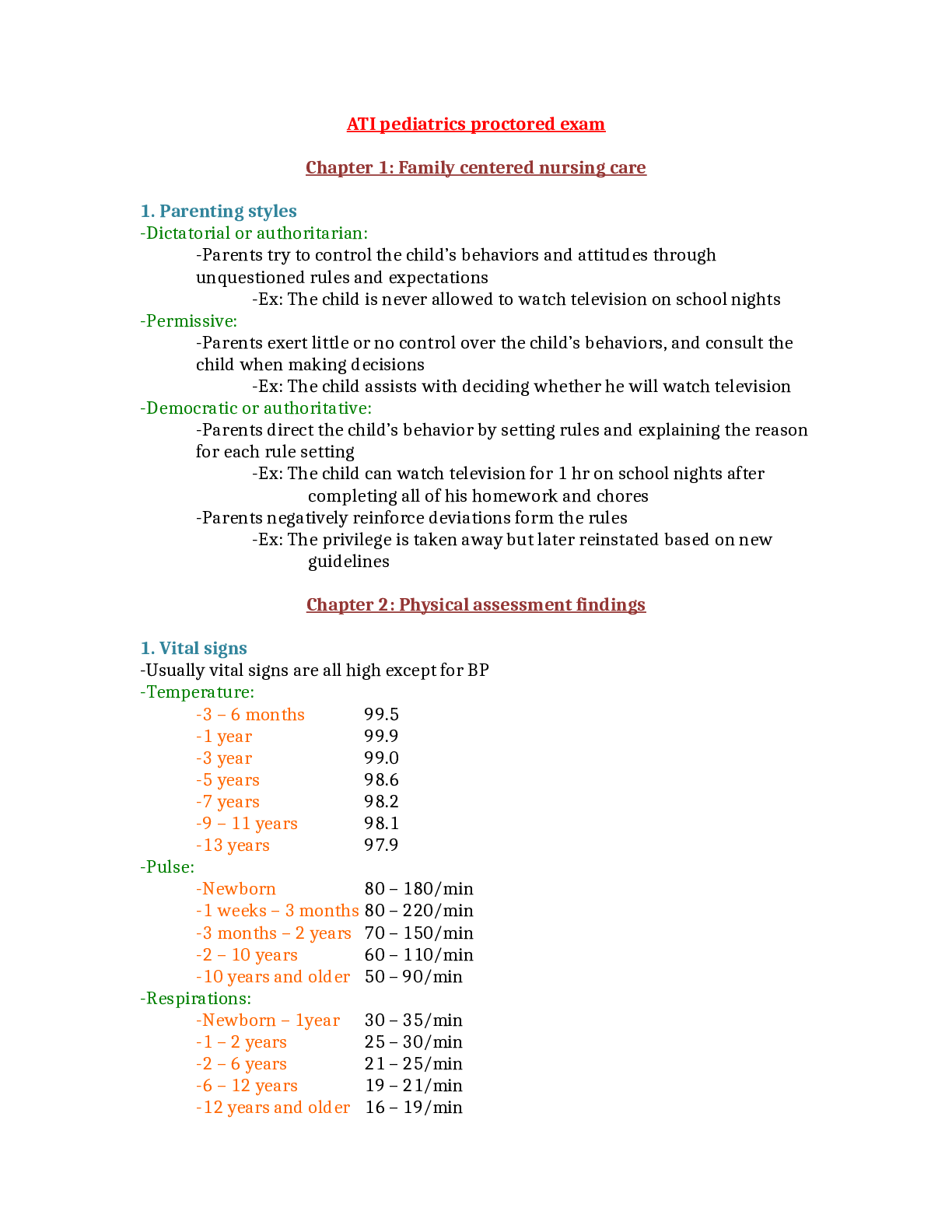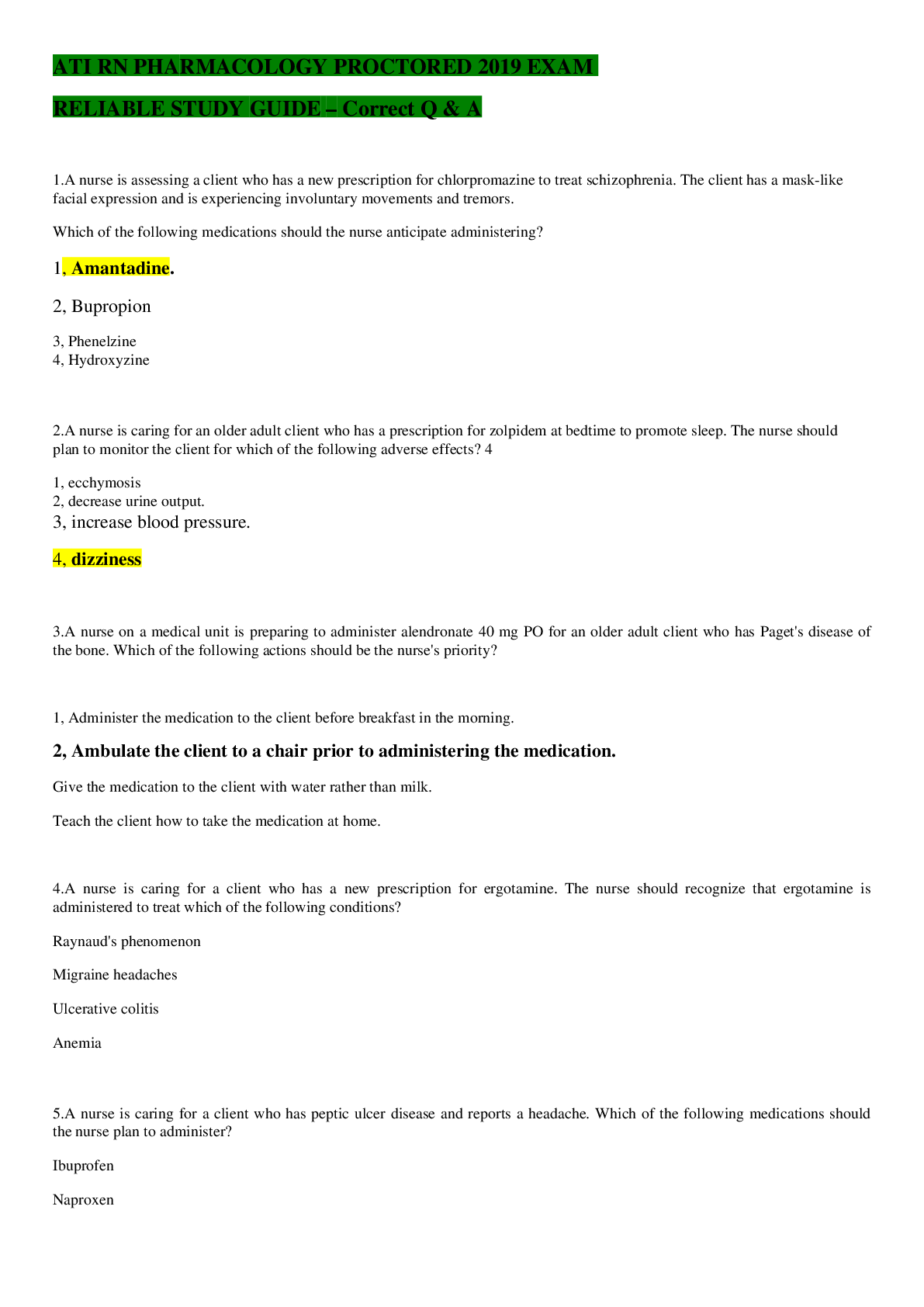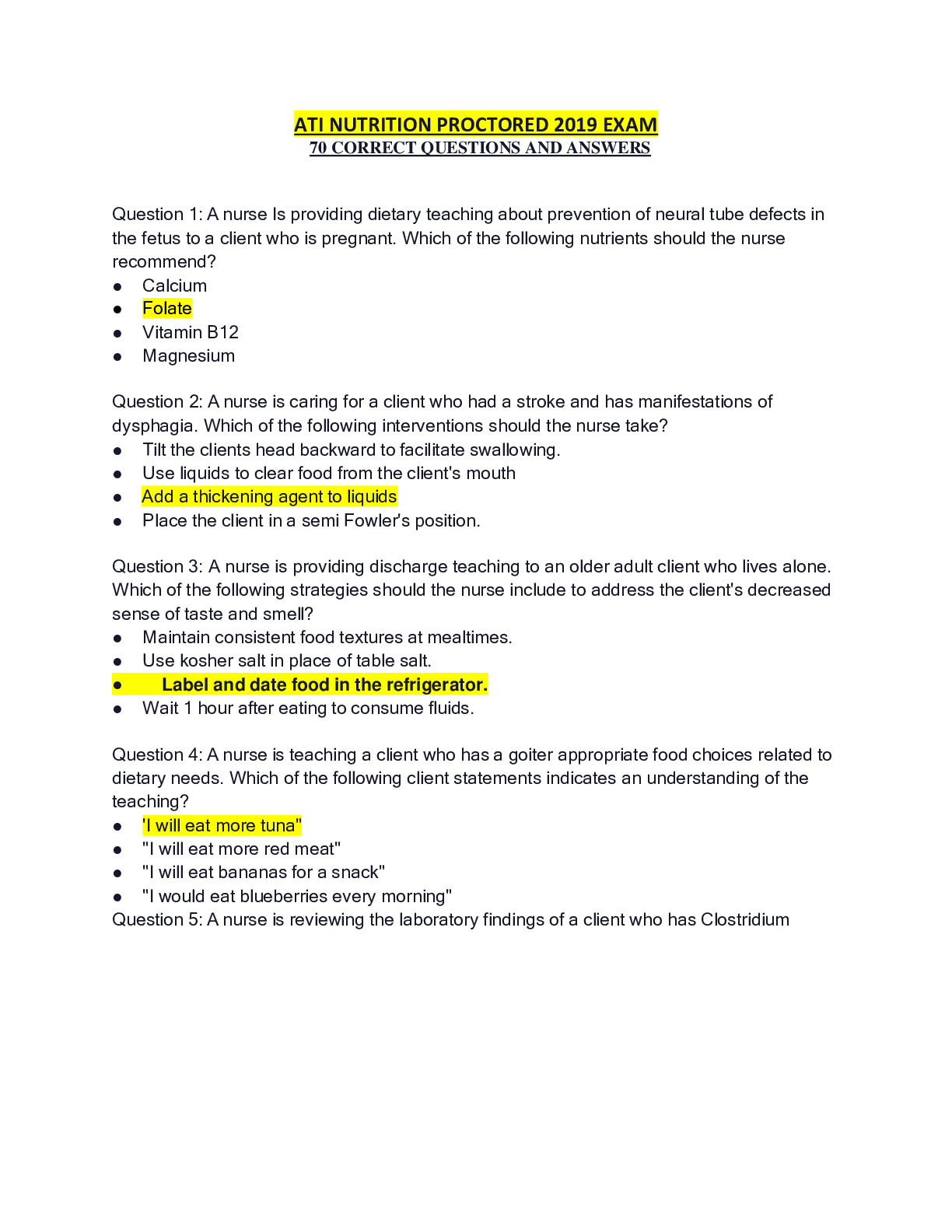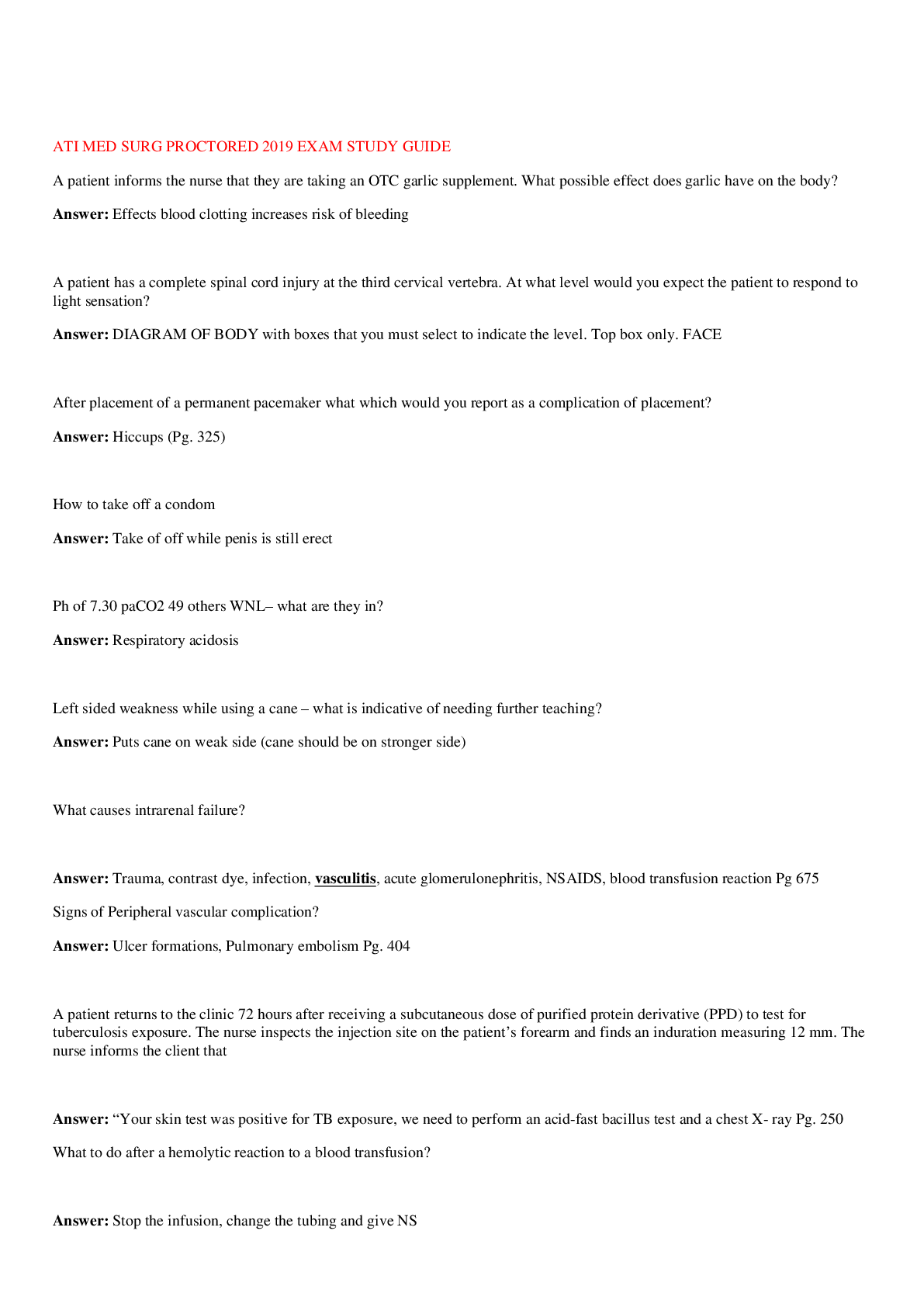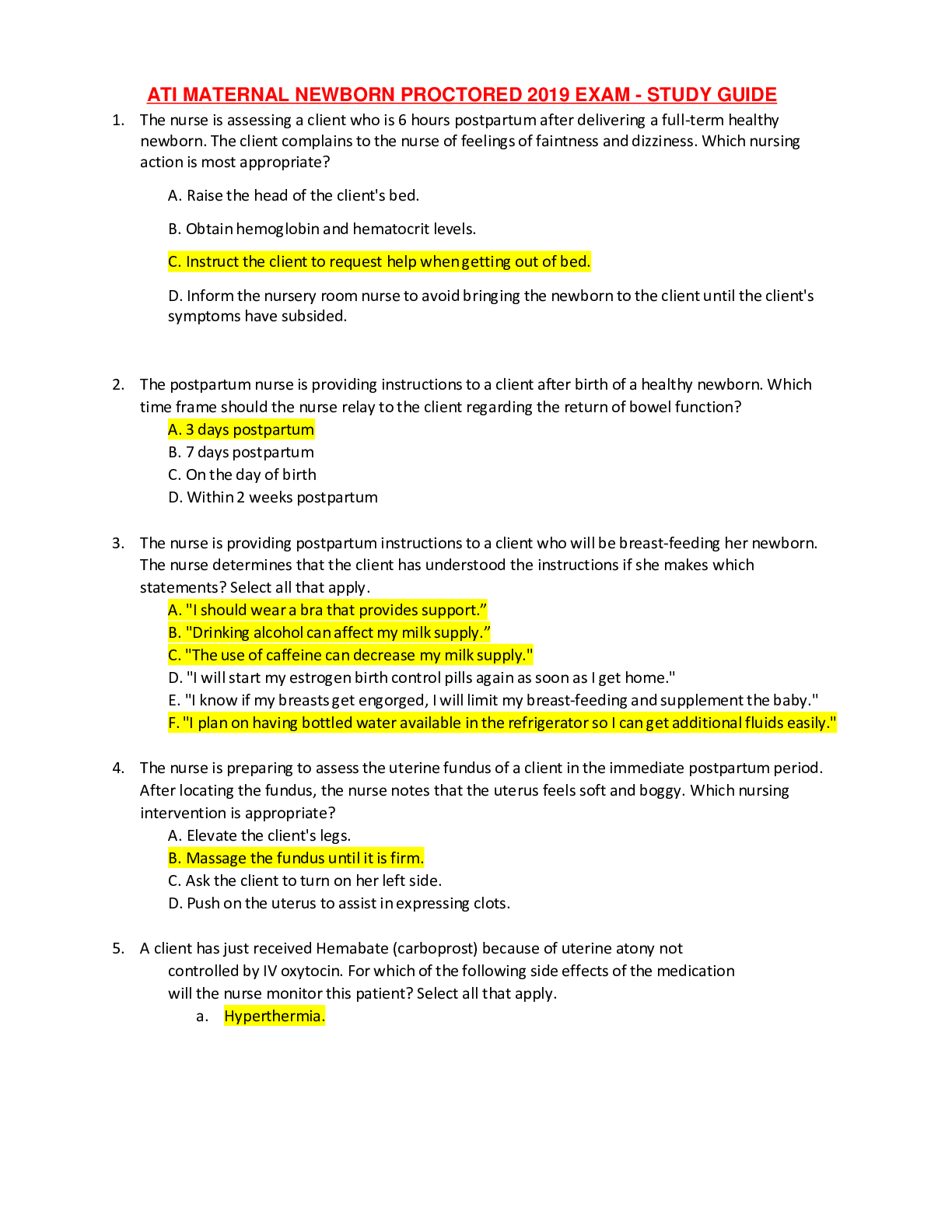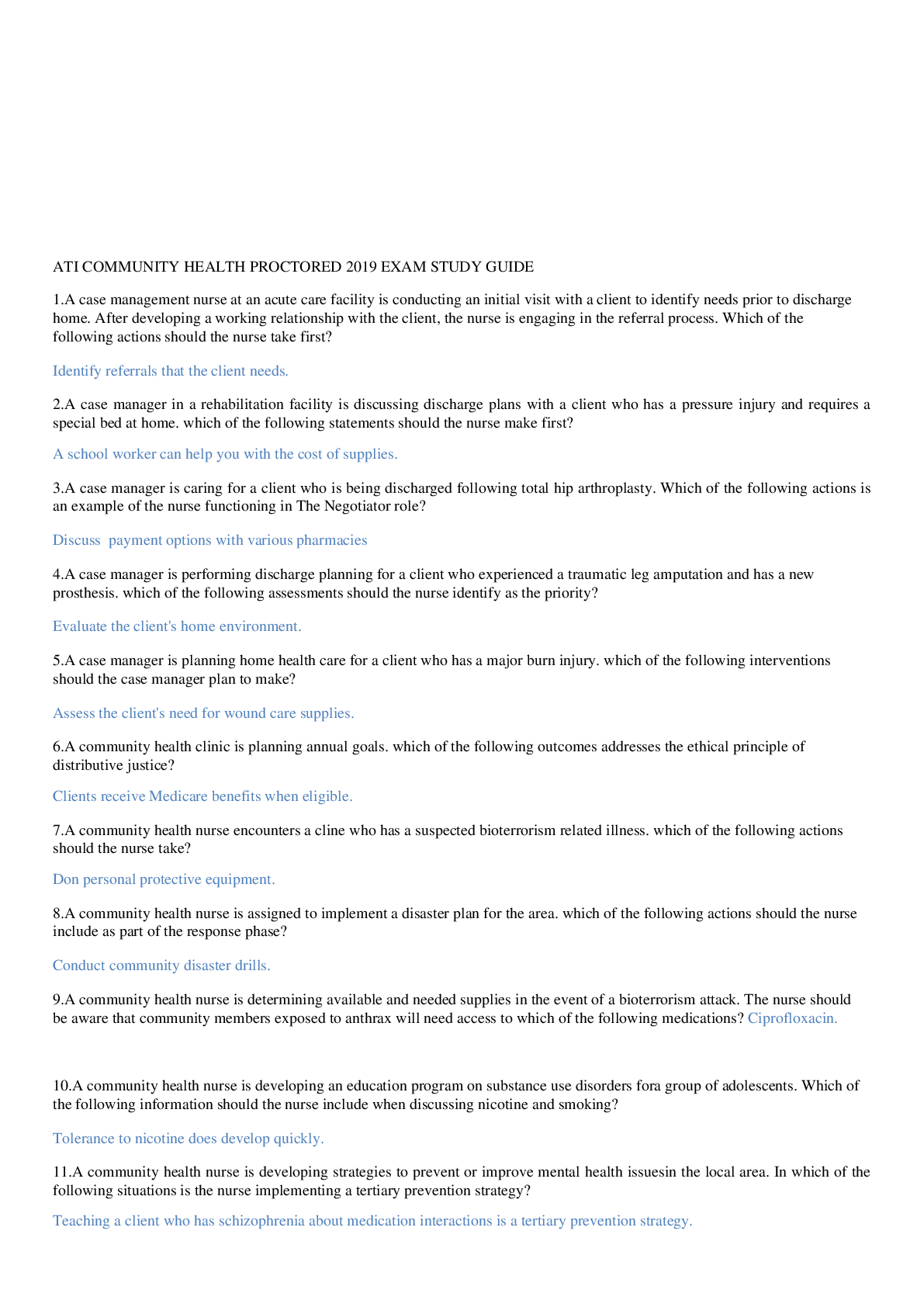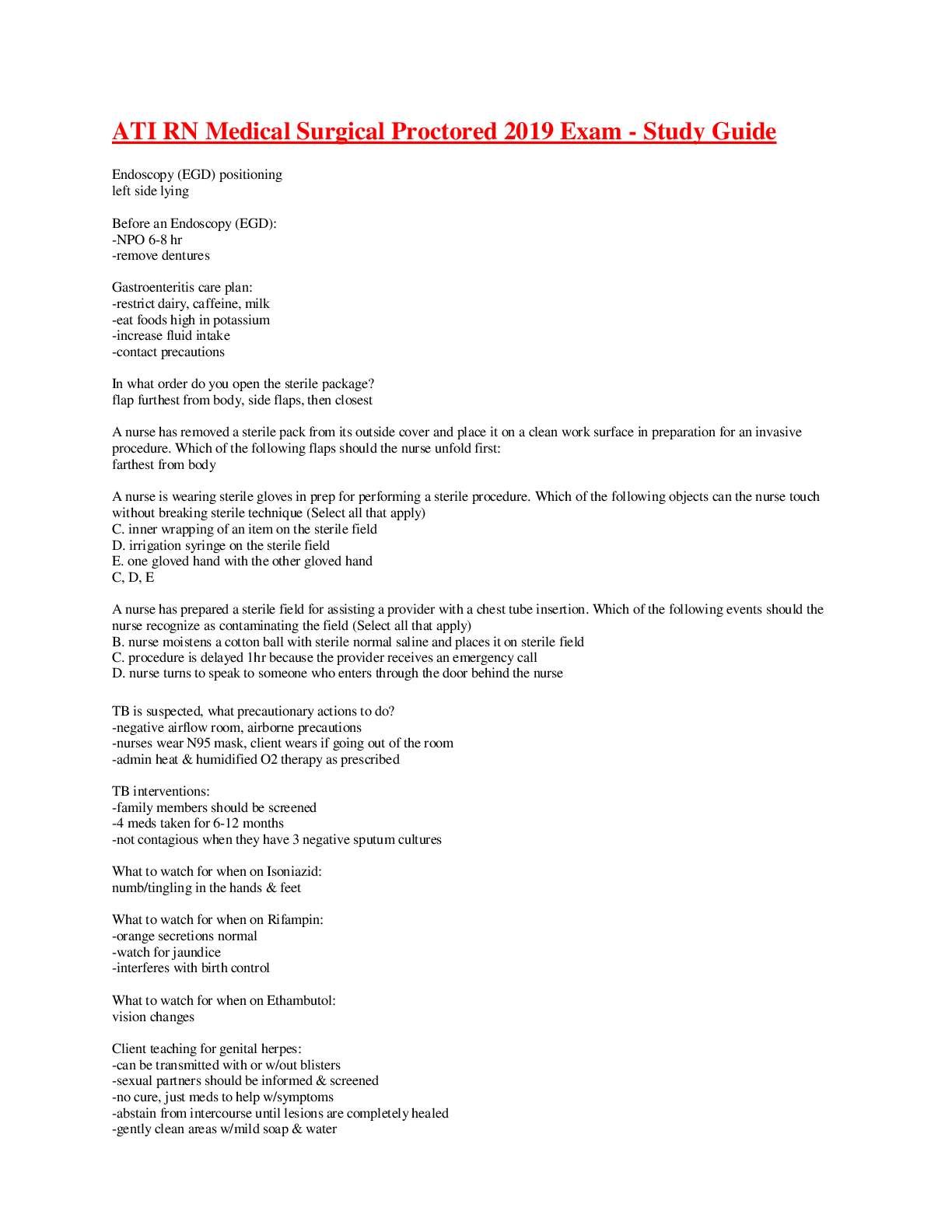Health Care > STUDY GUIDE > ATI Pharmacology Proctored 2019 Exam - Neuro 2 Revision Guide (All)
ATI Pharmacology Proctored 2019 Exam - Neuro 2 Revision Guide
Document Content and Description Below
ATI Pharmacology Proctored 2019 Exam Neuro 2 Revision Guide 1) The patient says to the nurse, "My doctor said I have epilepsy and need to take medicine for those seizures I had. Do I really ... need medicine?" What is the best response by the nurse? a. "Having epilepsy is the same as having a mental illness; the medications are very similar." b. "You will need medicine for a little while to cure the seizures." c. "You might not need medicine; you may be controlled by a ketogenic diet." d. "Yes, you need to take medication on a continual basis to control the seizures." 2) The nurse is teaching a class for patients who have been recently diagnosed with epilepsy. The nurse determines that learning has occurred when the patients make which statements? Select all that apply. a. "Excessive stress levels cause disruptions in how the brain receives oxygen, leading to epilepsy." b. "Epilepsy may be caused by a head injury." c. "Eating disorders, like anorexia nervosa, increase the risk for developing epilepsy." d. "A stroke, or brain attack, could increase the risk for developing epilepsy." e. "With some cases of epilepsy, the cause is never determined." 3) A parent says to the nurse, "The doctor prescribed ethosuximide (Zarontin) for my child, who has absence seizures. What does this mean?" What is the best response by the nurse? a. "Absence seizures are basically the same kind of seizures as grand mal, but they are less frequent." b. "Your daughter's seizures manifest as a staring into space for a few seconds. Ethosuximide (Zarontin) is a good medication for this type of seizure." c. "Explaining the types of seizure activity is complicated. Have you spoken to your doctor about it?" d. "Are you sure your doctor prescribed ethosuximide (Zarontin)? Phenobarbital (Luminal) is used much more frequently with children." 4) The patient has epilepsy and receives phenytoin (Dilantin). The patient has been seizure-free, and asks the nurse why he still needs blood tests when he is not having seizures. What is the best response by the nurse? a. "Because phenytoin (Dilantin) has a very narrow range between a therapeutic dose and a toxic dose." b. "Because phenytoin (Dilantin) can cause blood-thinning in some patients." c. "Because phenytoin (Dilantin) can cause Stevens-Johnson syndrome, which will show up in the blood tests." d. "Because phenytoin (Dilantin) can deplete your system of potassium." [Show More]
Last updated: 1 year ago
Preview 1 out of 21 pages
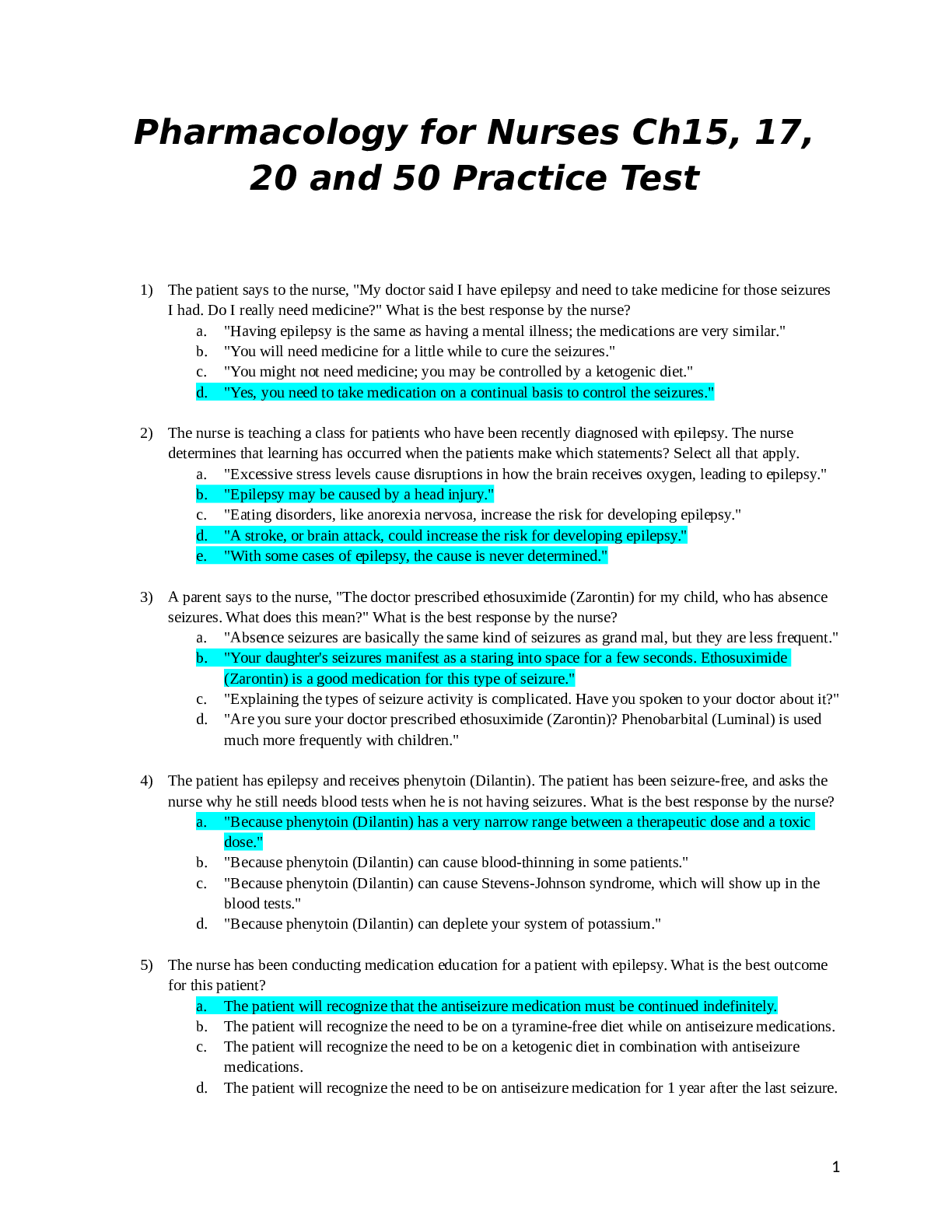
Buy this document to get the full access instantly
Instant Download Access after purchase
Add to cartInstant download
We Accept:

Reviews( 0 )
$15.00
Document information
Connected school, study & course
About the document
Uploaded On
Sep 07, 2021
Number of pages
21
Written in
Additional information
This document has been written for:
Uploaded
Sep 07, 2021
Downloads
0
Views
38

.png)
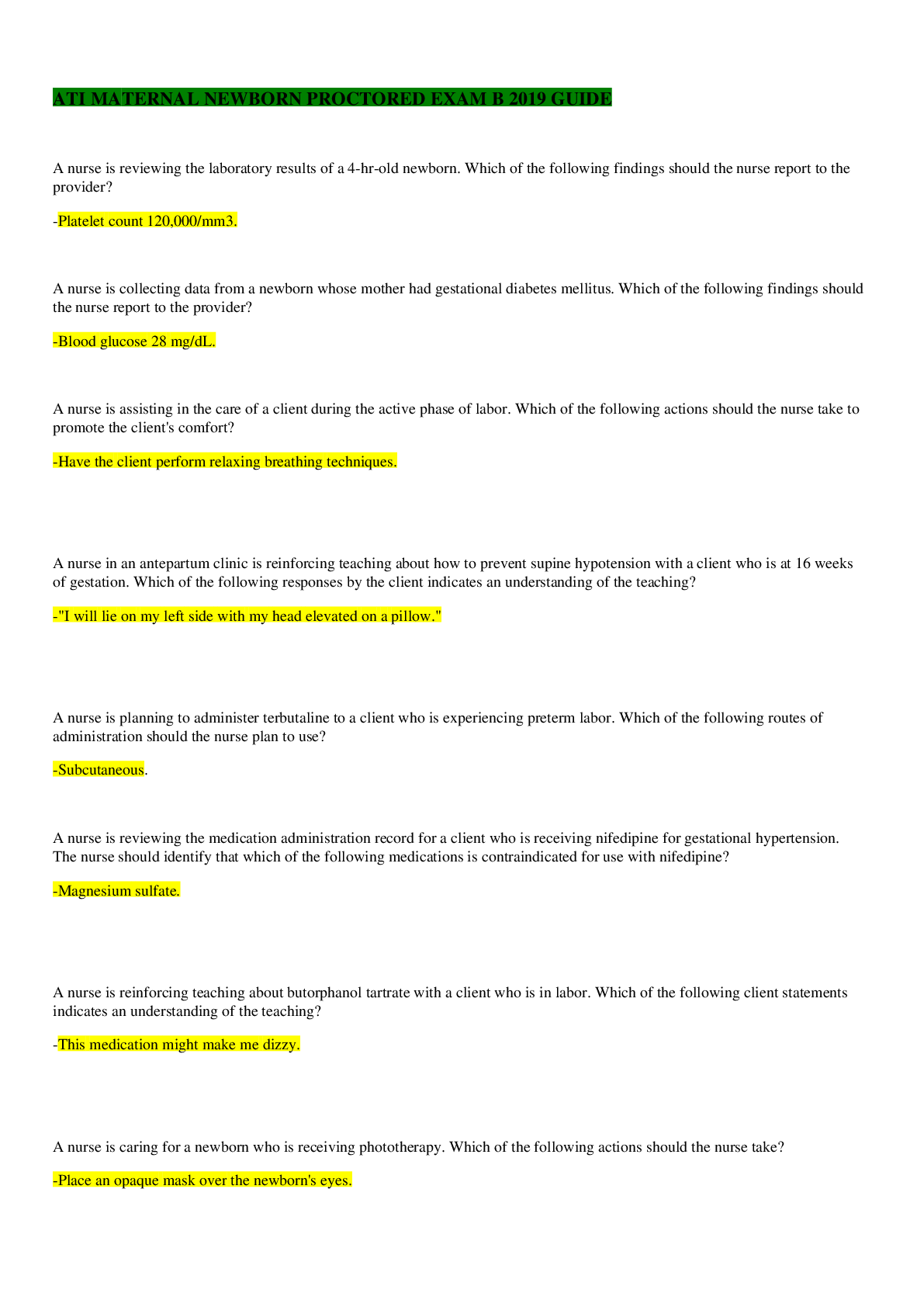
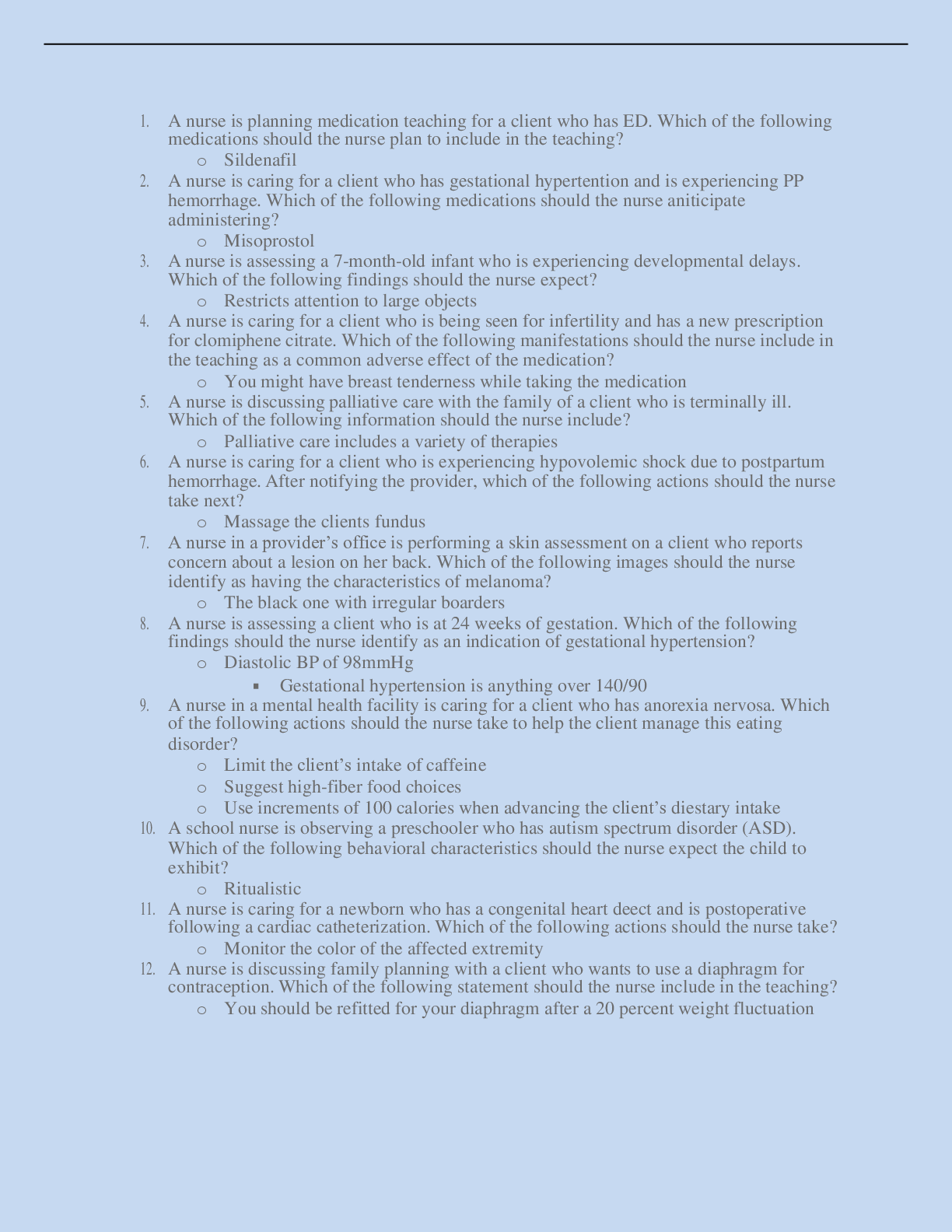
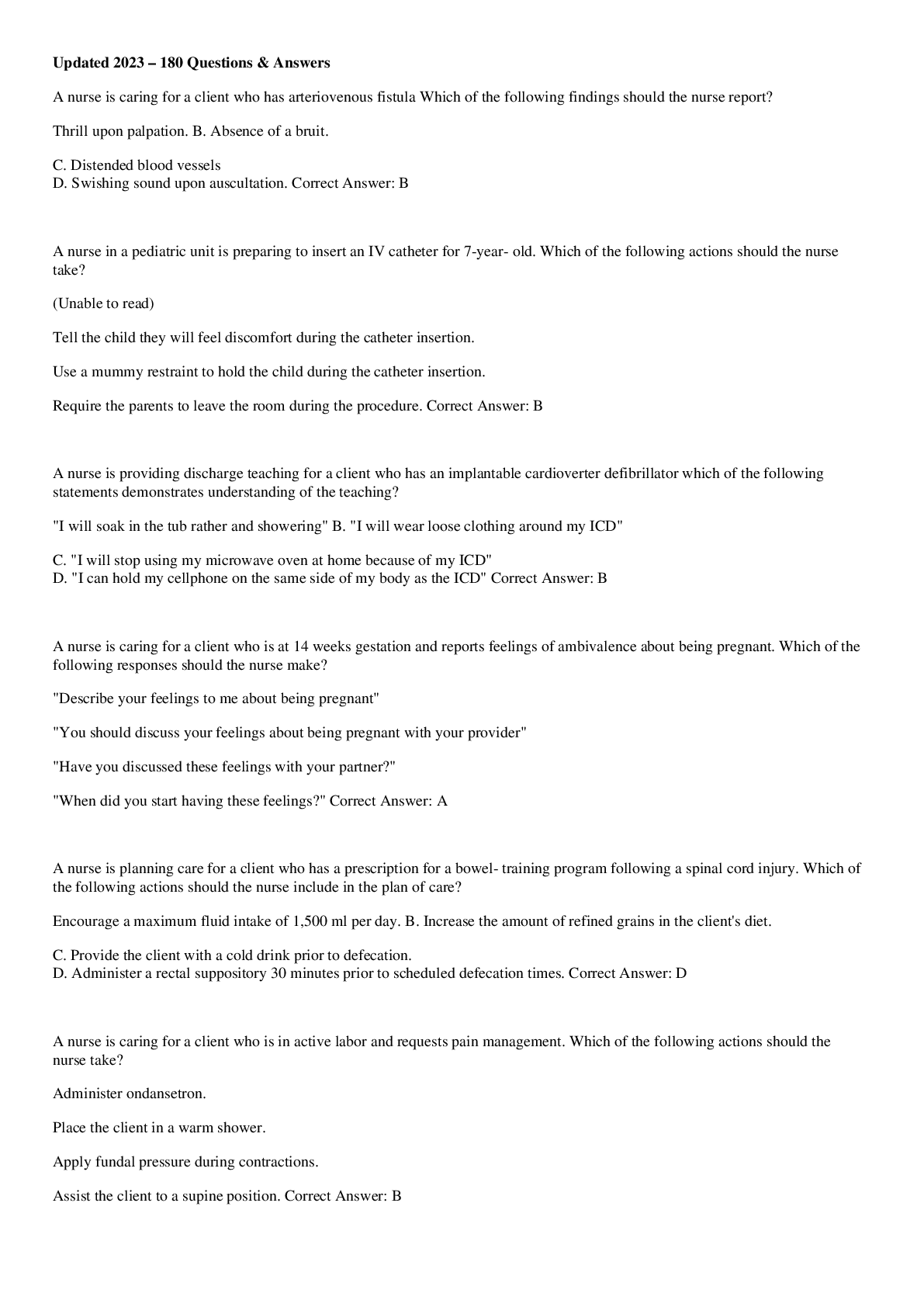
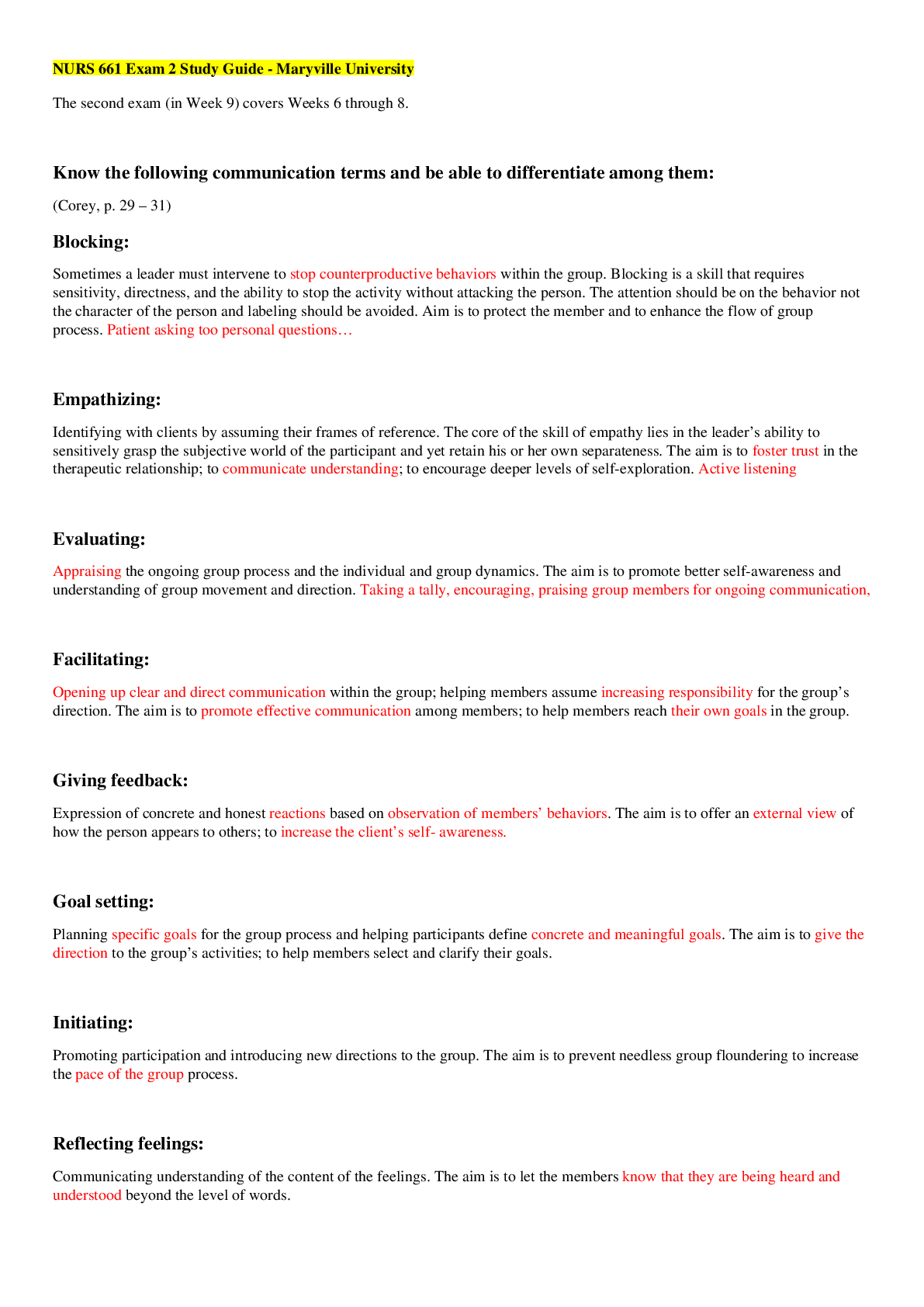
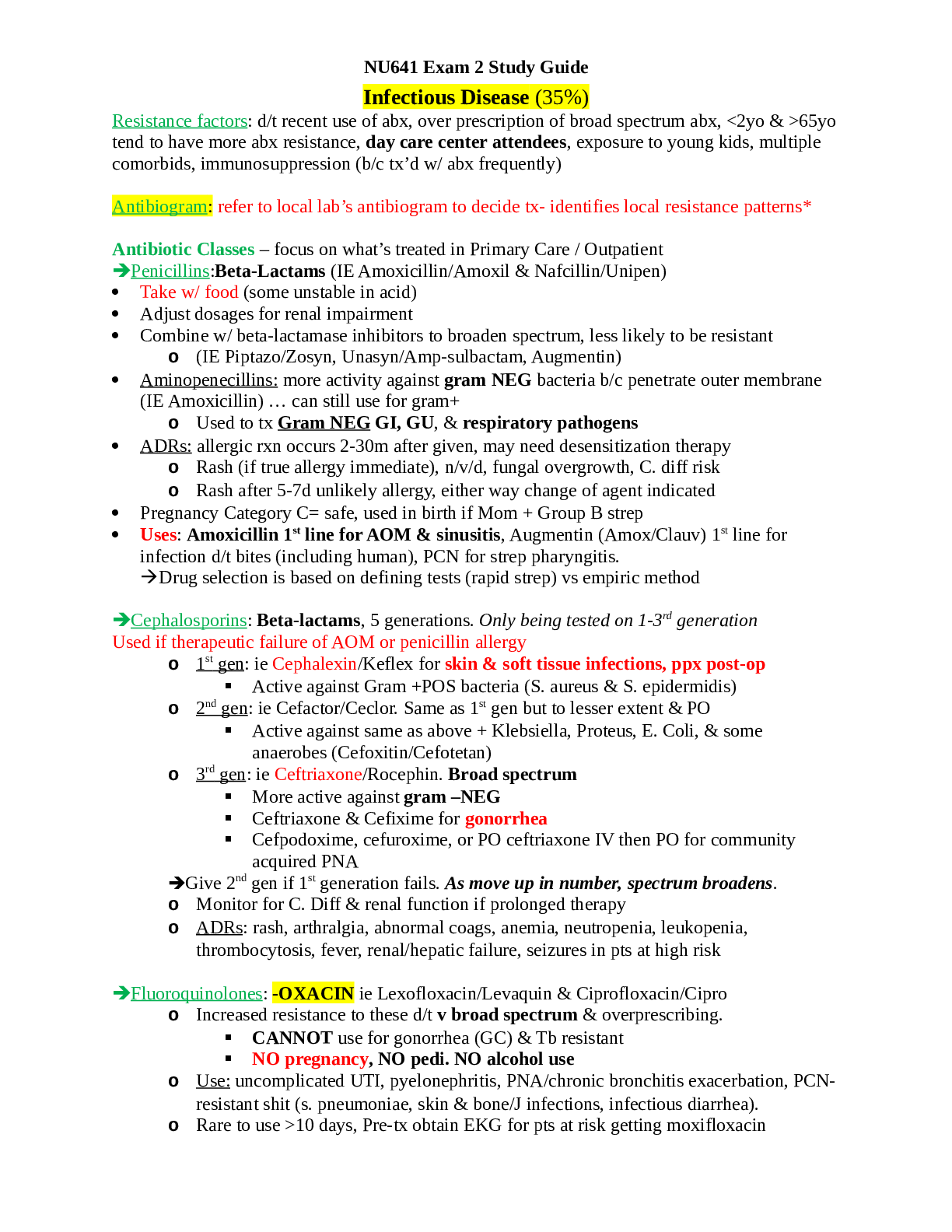
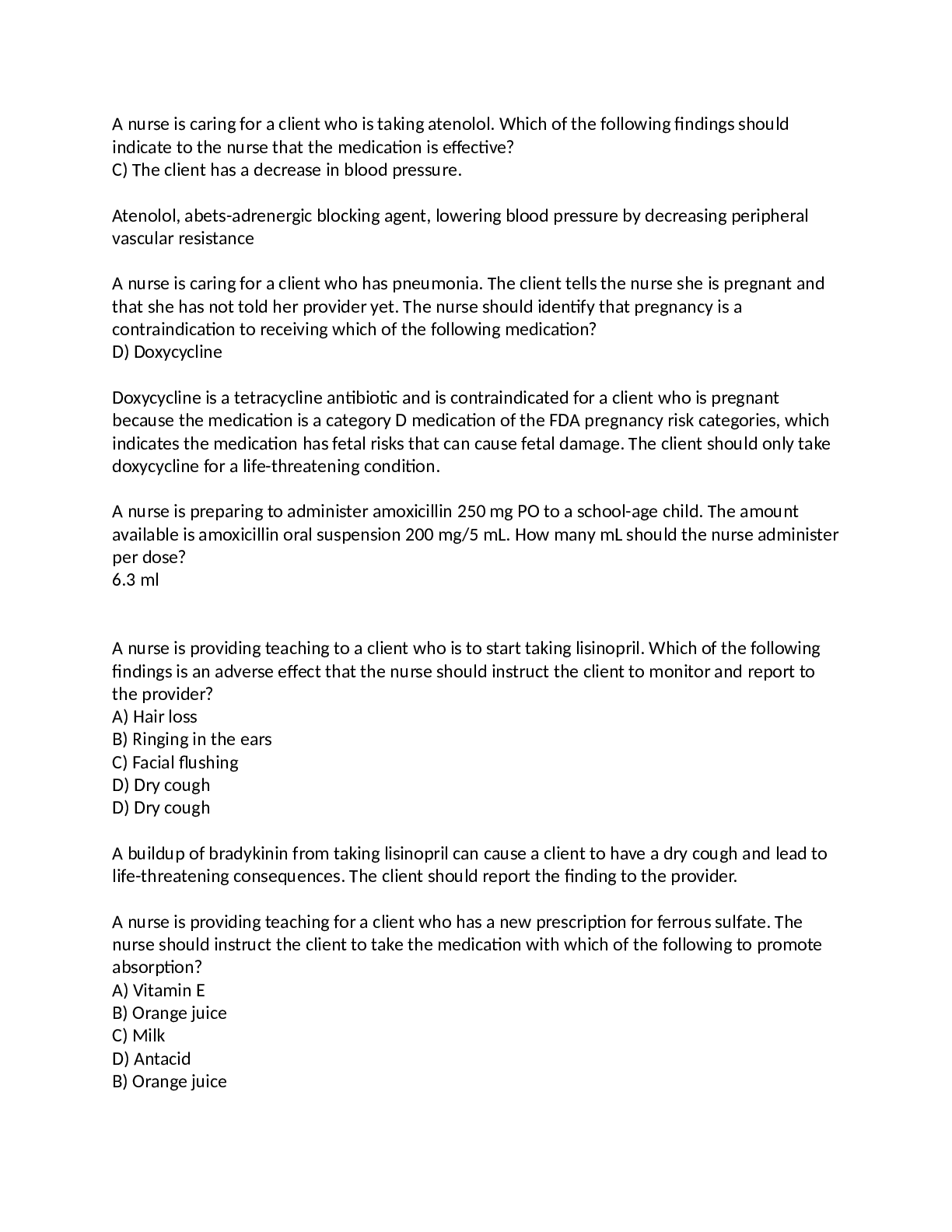
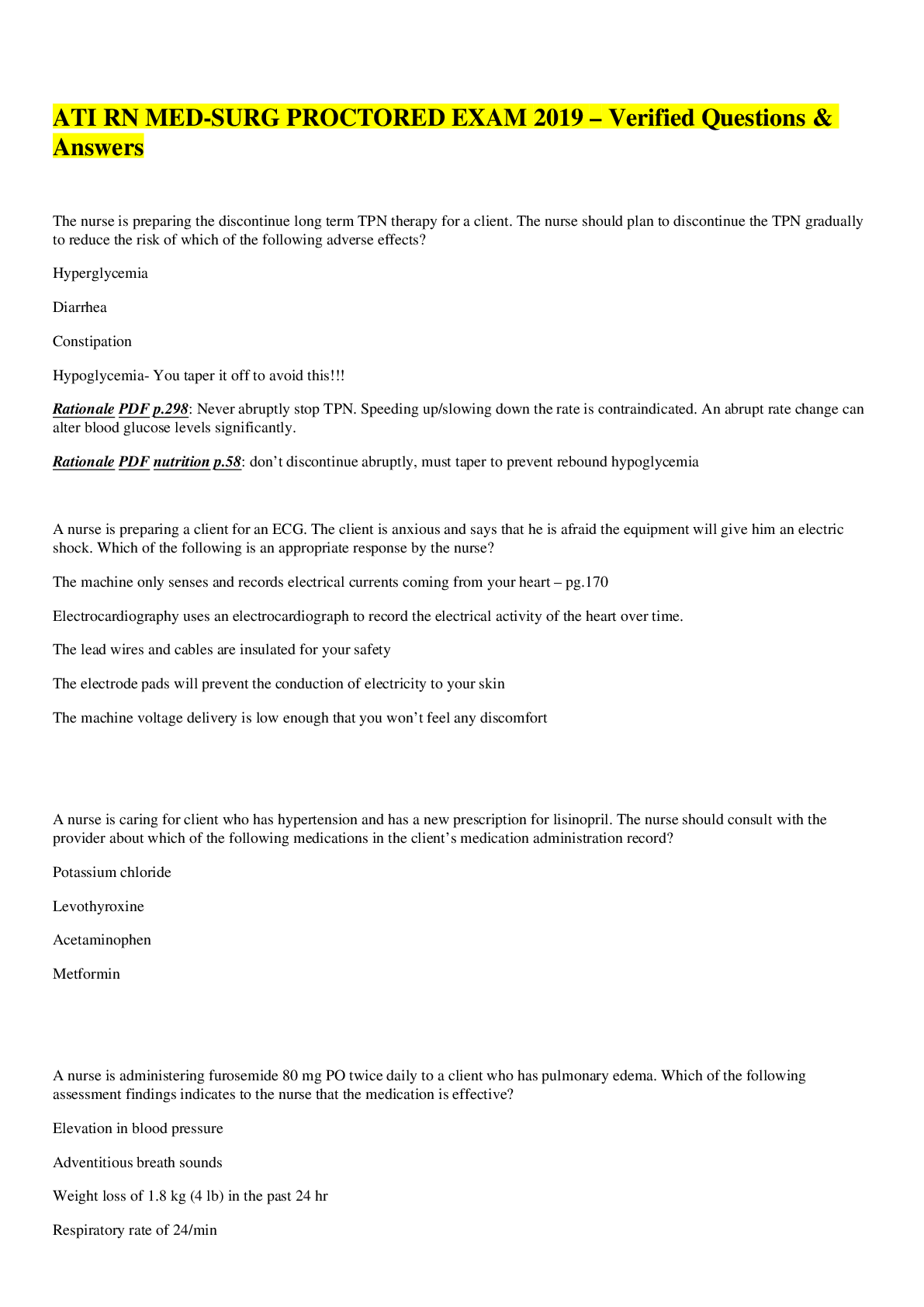
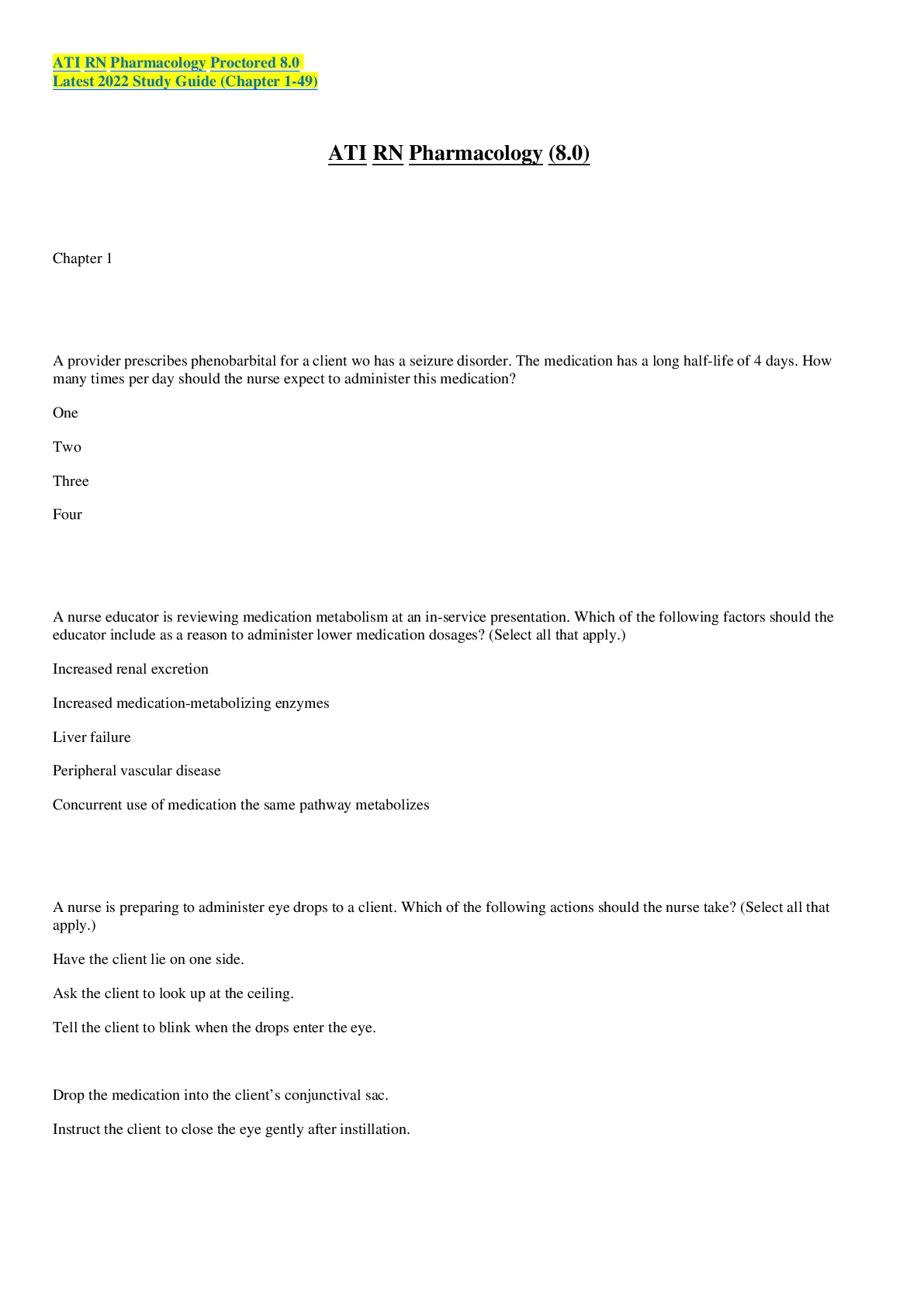
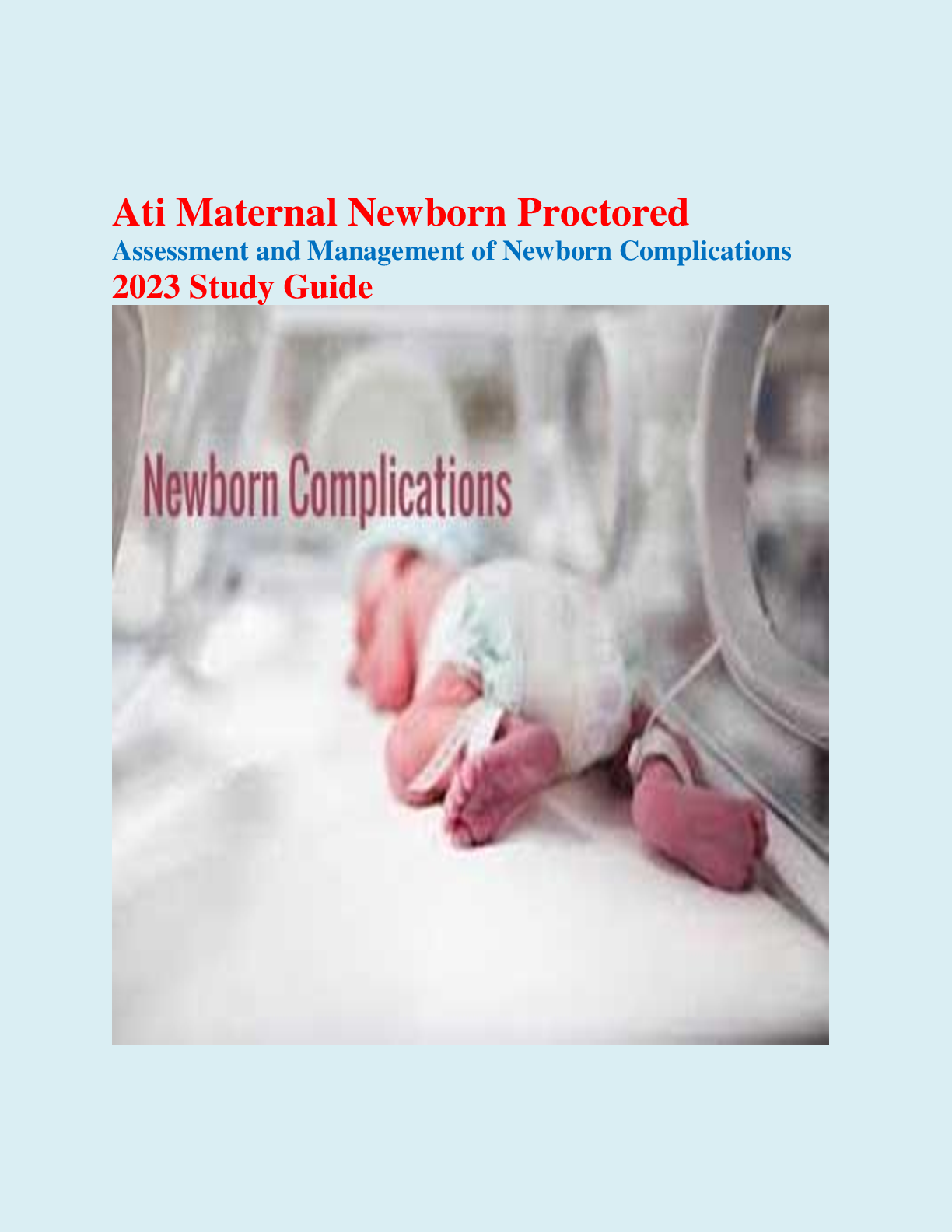
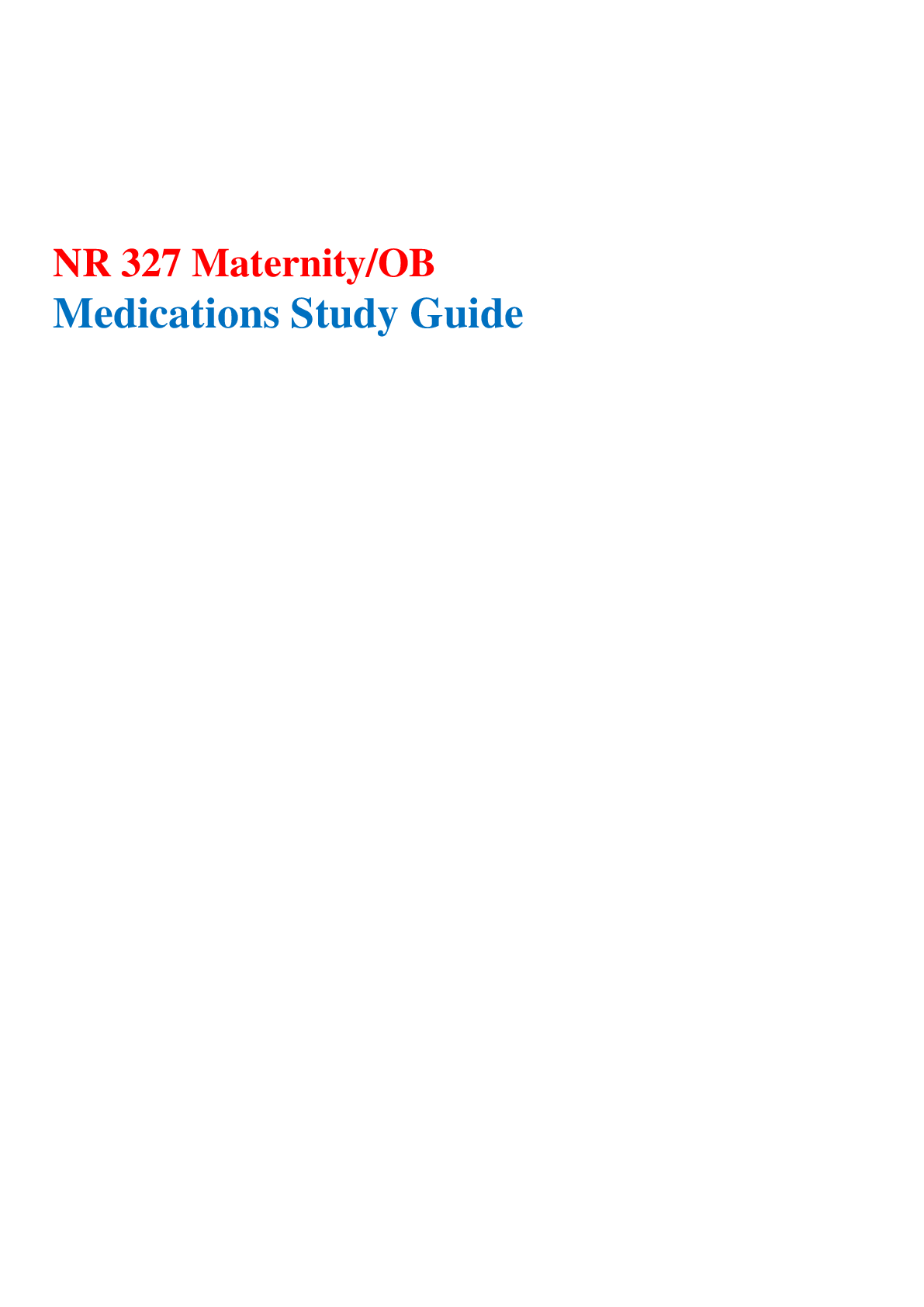
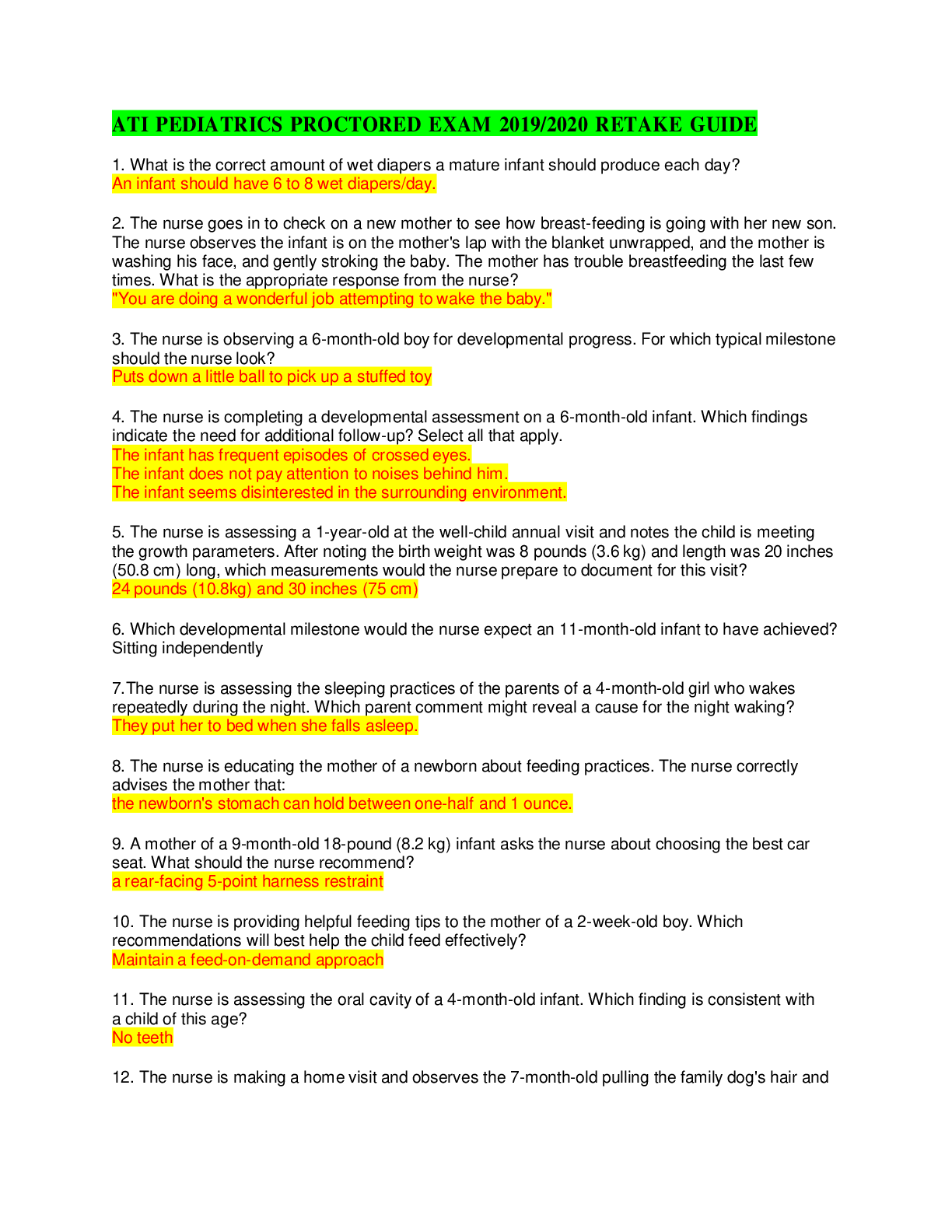

.png)
